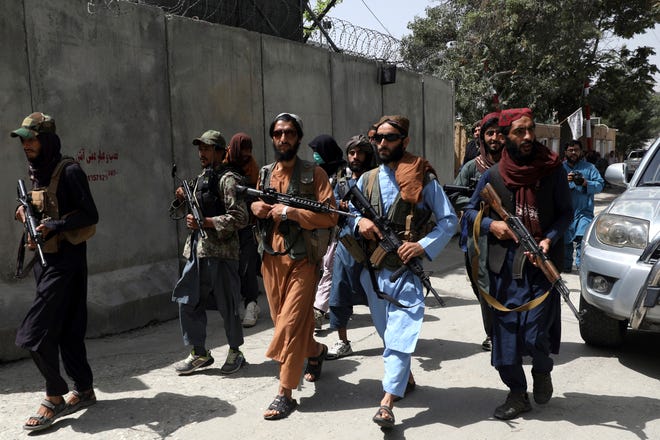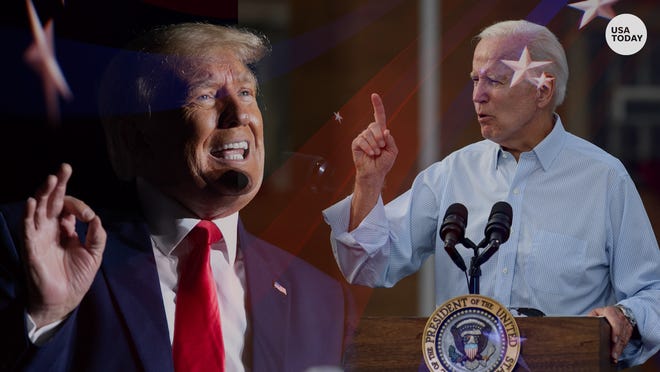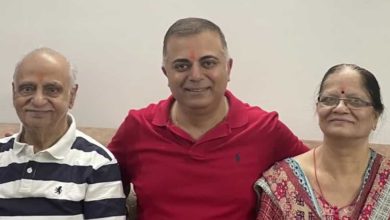
With the Aug. 31 deadline looming for the U.S. to complete its withdrawal from Afghanistan, the outlines of a new government will likely take shape soon.
The Taliban has struck a more moderate tone in its public comments as it has retaken Afghanistan and as the organization’s leaders negotiate the formation of its new government. The New York Times reported Saturday that the Taliban’s top political leader was to begin those talks.
Here are some of the names and organizations to know in Afghanistan as it transitions under Taliban rule.

Mullah Abdul Ghani Baradar
Baradar is the Taliban’s top political leader, who brokered an agreement with the Trump administration that led to plans for the U.S. withdrawal by mid-2021. He is the only surviving member of the Taliban given his post by Mullah Mohammed Omar, the commander killed in 2013. That has conferred on him “near-legendary status within the movement,” according to the Associated Press.
While Baradar is not the Taliban’s supreme commander, he has been its most public-facing leader. The Wall Street Journal called him “the new face of Afghanistan’s Taliban rulers” in an Aug. 16 story.
He has a “large and loyal following among the Taliban rank and file,” according to the New York Times, and is in talks with former President Hamid Karzai and others about forming a government under Taliban rule.
Baradar returned to Afghanistan amid the Taliban takeover of the country last week, ending two decades of exile that included imprisonment after his 2010 arrest by the CIA and Pakistan in Karachi, according to the AP. He is in his 50’s.
He has been speculated as a candidate to become Afghanistan’s next ruler.
Mullah Hibatullah Akhundzada
After a U.S. drone strike killed Akhtar Mohammad Mansour in 2016, Akhundzada, Mansour’s appointed successor, ascended to become supreme commander of the Taliban.
While Akhundzada was part of the uprising against the Soviet Union’s incursion into Afhanistan in the 1980’s, he is better known as a religious leader and acted as a “senior leader in the Taliban courts for years,” according to a 2016 profile by the BBC.
He was a longtime teacher at a mosque in Pakistan and is the group’s Emir, or spiritual leader.
Akhundzada has been more secretive than Baradar, releasing statements during religious holidays, and Reuters reported that his location is unknown. He is believed to be in his 60’s.
Zabihullah Mujahid
Mujahid is the longtime Taliban spokesman who until recently had worked in secrecy.
The BBC described his first press conference in Kabul earlier this month as an emergence after years of operating “in the shadows, only a voice on the end of the phone.”
His identity was so secret, the BBC reported that there was speculation that he was more than one person operating under a made-up name.
So far, Mujahid has tried to strike a moderate tone in his public statements, offering assurances that women would not have to fear violence despite a history of enforcing strict codes that allowed them to be raped, abducted and forced into marriage if they were seen in public without a male relative.
Hamid Karzai
Karzai is Afghanistan’s former president, who presided over the country from 2001 until 2014. He reportedly has taken on a role in negotiating with the Taliban about a power transfer in Afghanistan.
The Wall Street Journal reported that Karzai “has sought to cast himself as leader of the people” after President Ashraf Ghani fled the country. He has formed a three-person council that includes a former Afghan government official and an Islamist warlord to work on a peaceful power transition, according to the newspaper.
ISIS-K
The K in the group’s name stands for Khorasan, the Islamic State in Iraq and Syria’s affiliate in Pakistan and Afghanistan.
Its most recent entanglement with the U.S. withdrawal from Afghanistan came as fears mounted about terror attacks in Kabul on civilians and U.S. military surrounding the airport being used for for evacuations.
Flights were suspended over the weekend amid a looming terror threat from ISIS-K.
The group is at odds with the Taliban over its devotion and adherence to Islam, and the two groups have attacked each other. Douglas London, the CIA’s former top counterterrorism chief for the region, called the two groups “mortal enemies” as they compete for “resources, materials and power even though (ISIS-K is) relatively small.”
Contributing: Courtney Subramanian, Tom Vanden Brook, Maureen Groppe, Josh Meyer, The Associated Press, The New York Times, BBC, The Wall Street Journal, NPR, Reuters,
Source link








